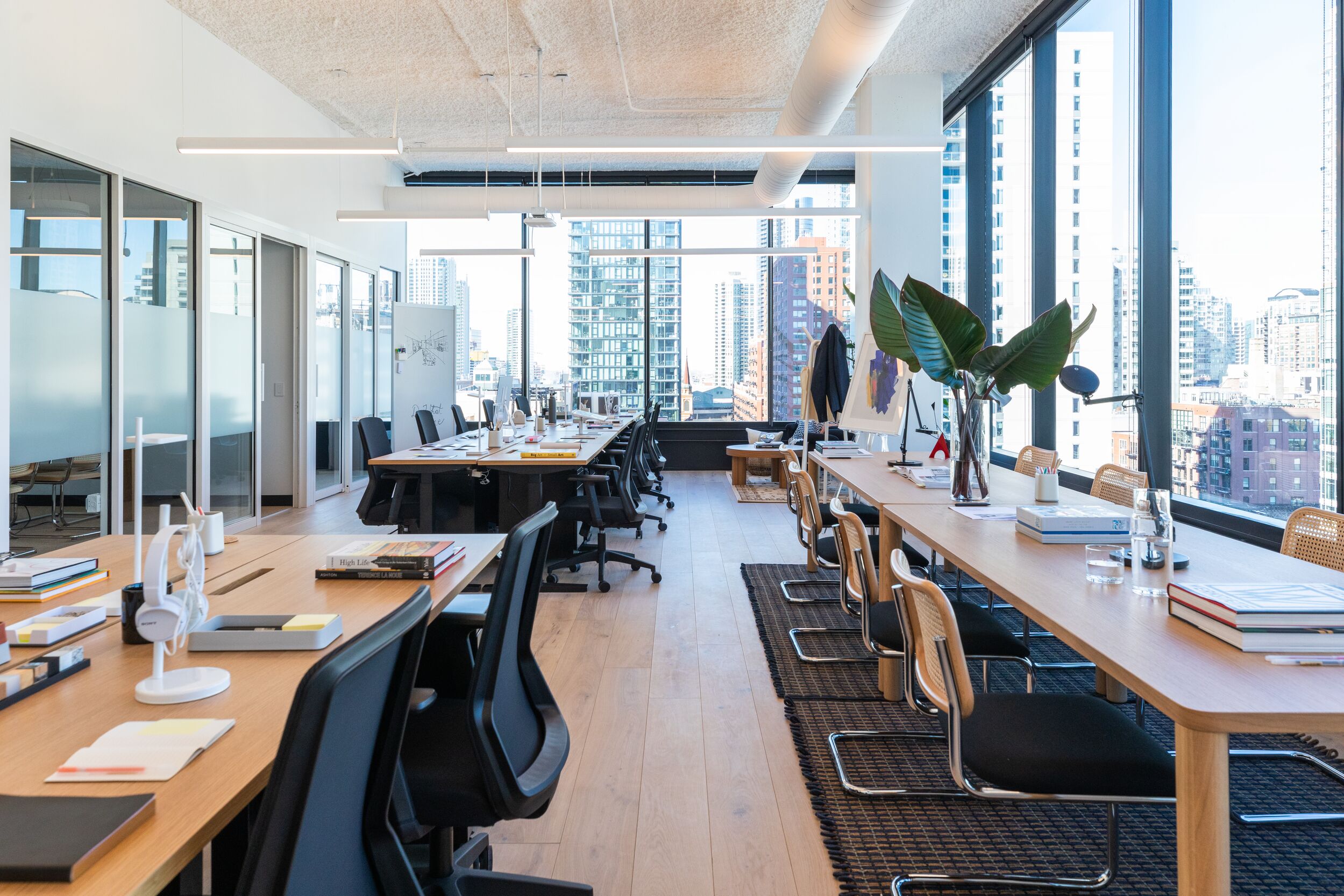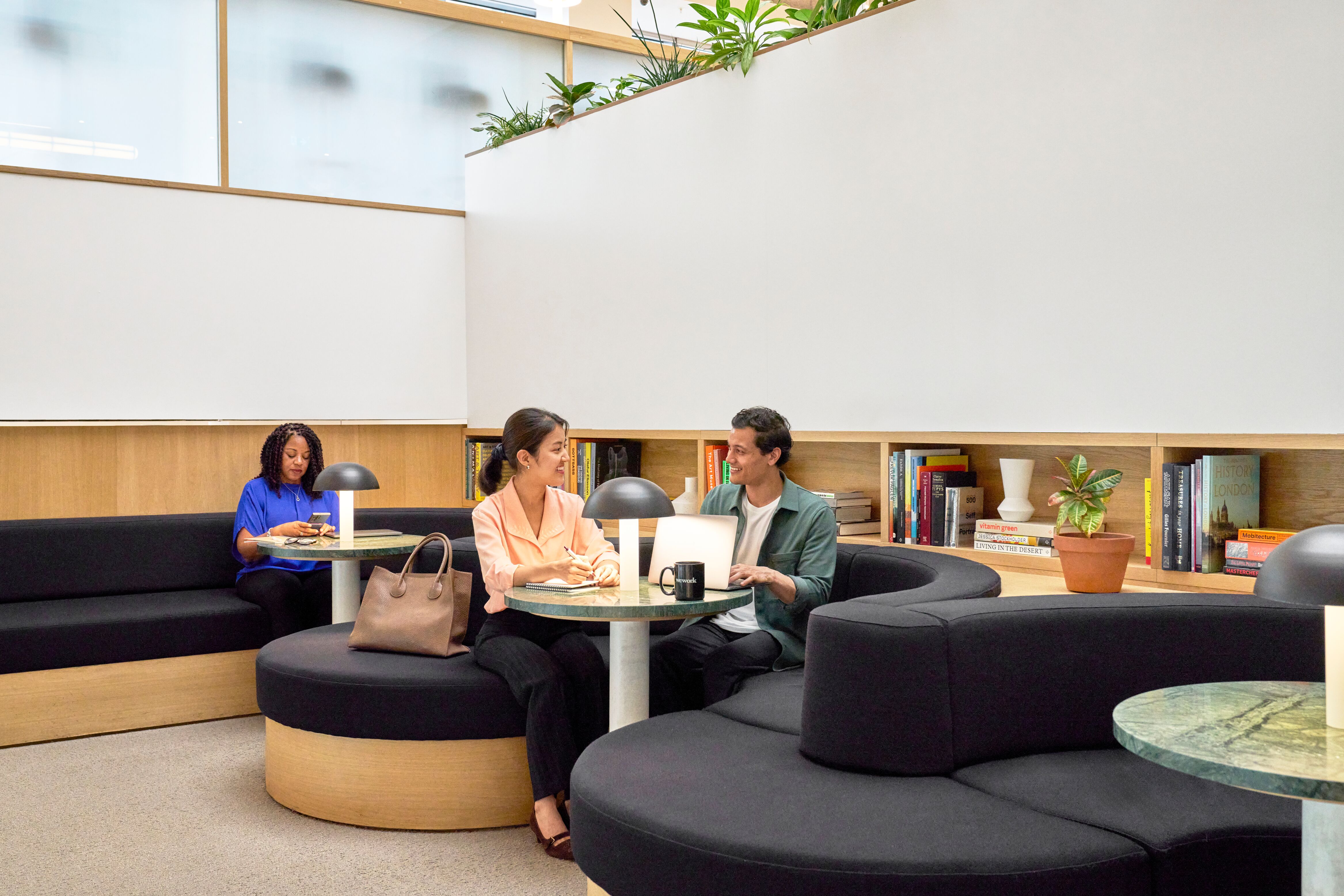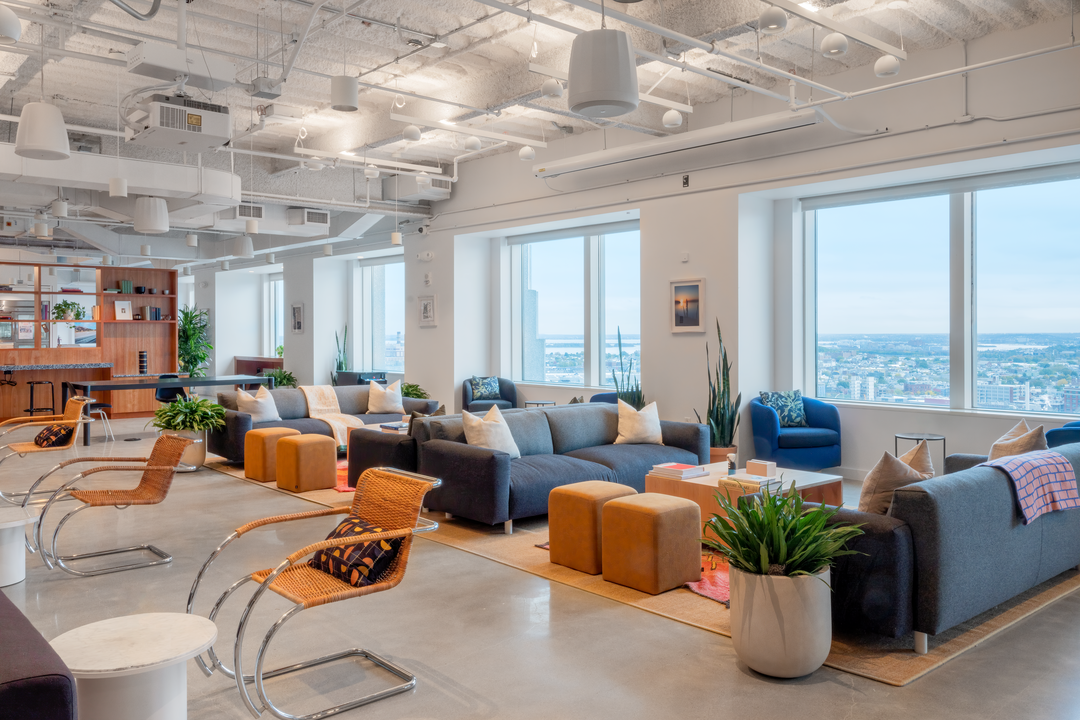Click here to read the full report. This PDF is currently only available in English.
Accelerated by the pandemic, companies and employees have reached an inflection point in redefining our world of work. The days when companies required their office employees to gather in a central place five days a week are disappearing. As we navigate the adoption of hybrid work models, it’s inarguable that the needs and expectations of both employers and employees are changing rapidly. These demands, amplified by tight labor markets, are forcing employers to act urgently. At the same time, as organizations quickly assess new hybrid models, they want to retain the inherent business value a traditional office environment provides: the chance to be creative, collaborate, mentor, learn—to build culture together and more.
Leaders are now asking, How can the flexible office space fit into a portfolio strategy? How does it compare with traditional offices and at-home workplaces from an experience perspective? From a productivity and performance perspective? An engagement perspective?
A key question has emerged: “Can embedding flexible office space into the workplace ecosystem help companies and their employees find the right balance?”
To explore these questions and others, Cushman & Wakefield partnered with WeWork to develop a global workplace experience report, surveying 800 people working in WeWork spaces in London, Singapore, and New York. The survey is an extension of Cushman & Wakefield’s Experience per Square FootTM (XSF) survey, which gathered more than 6 million data points from 125,000 people on their workplace experience over the past five years. In the latest response from WeWork members, 94 percent of respondents are similar to the larger XSF sample—while they’re working in a WeWork space, they’re part of a large organization and are working alongside other colleagues.
Among the findings, people who currently use flexible office space want to increase their utilization up to half their workday. Among those surveyed, 40 percent of their time is spent in flexible office space, 55 percent at home, and approximately 5 percent in other places. Looking ahead, respondents said they want to be in flexible office space 50 percent of the time and reduce their work-from-home time to about 45 percent—a 19 percent reduction.
Cushman & Wakefield is a leading global real estate services firm that delivers exceptional value for real estate occupiers and owners. Cushman & Wakefield is among the largest real estate services firms with approximately 50,000 employees in over 400 offices and approximately 60 countries.
Click here to read the full report. This PDF is currently only available in English.










